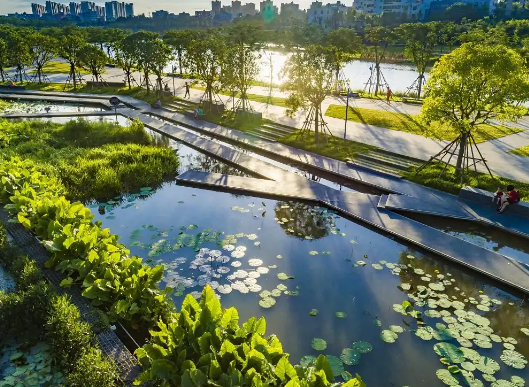Kongjian Yu: Redefining Landscape Architecture for Urban Spaces
Kongjian Yu, a renowned landscape architect from China, has been a transformative force in how we perceive and design urban landscapes. With an emphasis on ecological sustainability and cultural relevance, his work stands at the intersection of nature and urban life, addressing pressing environmental challenges. This article delves into his unique approaches and the impact of his work on modern landscape architecture.
Innovative Approaches to Urban Design
Kongjian Yu’s philosophy revolves around the idea of “sponge cities,” a concept aimed at making urban areas more resilient to climate change. His designs focus on integrating natural systems with urban infrastructures to help cities absorb rainwater and reduce flooding risks. One of his notable projects, the Qunli Stormwater Park in Harbin, China, exemplifies this approach by transforming an abandoned site into a multifunctional park that serves both recreational and ecological purposes. By blending sustainability with aesthetics, Yu encourages urban spaces to coexist harmoniously with nature.
Cultural Relevance and Local Identity
In addition to sustainability, Yu emphasizes the importance of local culture and identity in landscape design. He believes that landscapes should reflect the history and traditions of the regions they inhabit. For instance, his work on the former site of the Beijing Olympic Park integrates local plants and architectural styles, fostering a sense of pride and belonging among residents. This approach not only enhances the visual appeal of the spaces but also elevates community engagement and ownership, thereby strengthening the social fabric of urban areas.
Global Influence and Educational Initiatives
Yu’s influence extends beyond his projects, as he actively engages in educational initiatives to inspire future landscape architects. Through lectures and workshops, he encourages students and professionals to think critically about their role in creating sustainable environments. His commitment to nurturing the next generation of designers is evident in his founding of the Beijing-based landscape architecture firm Turenscape, which has become a platform for innovative design thinking. By sharing his insights and experiences, Yu is helping to shape a global movement towards more responsible landscape architecture.
In conclusion, Kongjian Yu’s work serves as a vital reminder of the power of landscape architecture in addressing modern urban challenges. By integrating ecological principles with cultural sensitivity, he is paving the way for more sustainable and meaningful urban environments. If you’re inspired by his approach, consider exploring more about his projects and philosophies to better appreciate the potential of landscape architecture in your own community.

